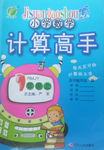题目内容
My aunt bought me a bicycle on my ninth birthday. She told me to learn to ride by ___36___. But I really didn’t know___37___to ride a bike. What should I do? First, I watched the other people ride. Then I pushed out the bicycle from my house. I was ___38___ I’d fall down and hurt my knees. But I knew I had to get on it sooner or later. So I___39___ to get on just like what the other people did. But I fell off twenty___40___later. Just at that time, my aunt came out from the ___41___. She told me to practice again and again. So I got on the bike a second time, and fell off a second time. But I never gave up. I practiced a third time, a fourth time …. I could be on it ___43___every time I tried again then before, 5 minutes, ten minutes, half an hour… until I could.
Like anything in life that you want to learn how to do or to be good at, you have to practice to ___44___it happen. Diligent practice is the key to success___45___you really want to learn to do a thing. More practice helps you to improve on the skills that you learn and ingrains (使根深蒂固)them in you until you can do it.
小题1:
小题4:
小题6:
小题8:
小题10:
Like anything in life that you want to learn how to do or to be good at, you have to practice to ___44___it happen. Diligent practice is the key to success___45___you really want to learn to do a thing. More practice helps you to improve on the skills that you learn and ingrains (使根深蒂固)them in you until you can do it.
小题1:
| A.herself | B.yourself | C.myself | D.himself |
| 小题2: |
|
| 小题3: |
|
| A.had | B.tried | C.like | D.hate |
| 小题5: |
|
| A.school | B.house | C.farm | D.village |
| 小题7: |
|
| A.shorter | B.longer | C. safer | D.dangerous |
| 小题9: |
|
| A.if | B.when | C.until | D.after |
小题1:C
小题1:A
小题1:D
小题1:B
小题1:A
小题1:B
小题1:D
小题1:B
小题1:C
小题1:A
小题1:C。myself我自己。她告诉我自己学骑自行车。
小题1:A。how to do怎么做。但我真不知道怎么骑自行车。
小题1:D。afraid害怕。我害怕跌倒伤了我的膝盖。
小题1:B。try to do设法,努力做。我努力学着其他人一样上车。
小题1:A。seconds秒。当我20秒之后跌倒了。
小题1:B。house房子。我的阿姨从房子里走出来。
小题1:D。second第二次。但我第二次跌倒了。
小题1:B。longer更长的。每次我都能够更长的时间在上面。
小题1:C。make it成功。你不得不练习直到成功。
小题1:A。if如果。如果你真的想要学做一件事。

练习册系列答案
 计算高手系列答案
计算高手系列答案
相关题目
 . since
. since